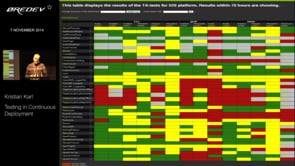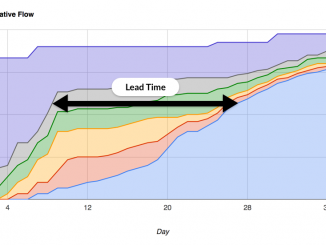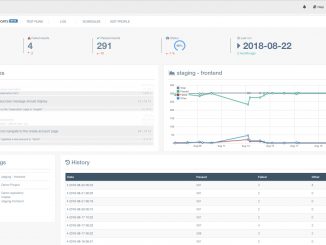Tutorials and resources on how to apply test automation in software testing
Apache JMeter is an open source load and performance testing tool developed by the Apache Foundation that has become a major asset in software testing, being also used as a solution for many online commercial load testing services. The book “Master Apache JMeter From load testing to DevOps” provides an impressive amount of knowledge on how to successfully use JMeter, from your first steps with the tool to its integration in a DevOps approach.
Retail is one of the industries the most impacted with the digital transformation. A retailer reputation is at risk if the consumer has a bad experience either in a store or in front of an e-commerce website. Software quality assurance and software testing are important activities to prevent issues. This article discusses some main challenges of test automation in the retail industry.
What kind of software testing do we need to have in a continuous deployment pipeline? What does it take to push a commit all the way to deployment? Fully automated. Several times a day. This is how Spotify does it.
Even the best software test suites can’t entirely prevent nasty surprises: race conditions, unexpected interactions, faults in distributed protocols and so on, still slip past them into production. Yet writing even more tests of the same kind quickly runs into diminishing returns. This talk presents new software testing automated techniques that can dramatically improve your software testing, letting you focus on what your code should do, rather than which cases should be tested.
There are still many people questioning the value of unit testing, and even more for the Test-Driven Development (TDD) approach. In this article, Krzysztof Jelski shares with us five metrics that should improve with the adoption of this agile practice for software development and testing.
Users care as much about how your service performs as they do what job it helps them accomplish. This is why performance is imperative and performance testing a must. So why do we still see so many 503 errors and slow apps? The answer is empathy, a lack thereof. Performance is the most tangible element of “non-functional” quality criteria we regularly ignore until it’s too late.
Calliope.pro imports JSON and XML test results from Cucumber, jUnit and other major software test automation tools and makes the data easily accessible in a central, shareable dashboard.








